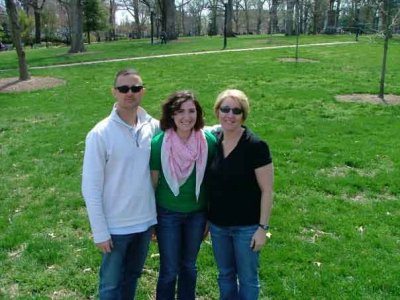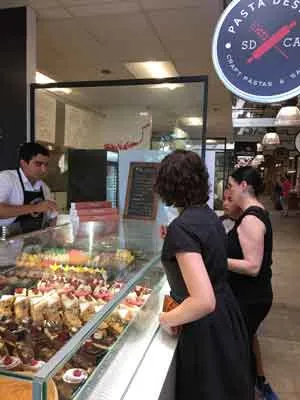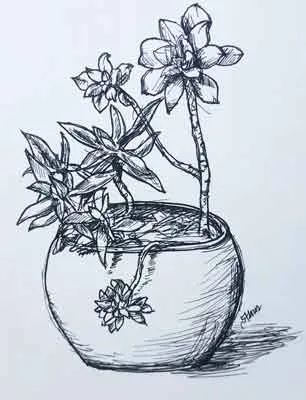Resilient Is a Label for Military Kids That Absolves a Nation of Further Reflection
Our family motto was, “Don’t look back.” Eyes forward. It’s just easier that way.
The call came as we settled into sleep. She’d taken a bottle of pills but said she hadn’t wanted to. I told her to go to the emergency room. She said she was walking that way. I don’t remember hanging up, I don’t remember telling Lee, I don’t remember driving more than two hours to Chapel Hill.
When I get to the hospital she is out of the ER, waiting in a room. Arrangements are made for her to go to a unit on the University of North Carolina campus—one where they take your shoelaces and don’t let you shave. Like the unstable chair wedged between the wall and the dinner table, the unit, by design, was not easy to reach. Park in the garage, take the raised walkway. Find the elevator, ride up, exit left, secret handshake or some such protocol and you can enter. Her room is bare; her roommate is 10 years my senior. What did we talk about? I do not know.

Valerie Suttee, right, and her Marine Corps husband, with their eldest child, in 2008. Photo courtesy of the author.
I drive the streets and backroads of Chapel Hill each day waiting for the visiting hours window to open and run the worries on repeat. My room at the Aloft deserves a better inhabitant, one who mingles at the lobby bar, enjoys the sassy DJ mashups, and looks like they actually sleep. Worry is a sorry partner, bringing no actionable items to the late-night meeting agenda. After years of working together on a group project with my fellow team members, prayer, and preparation, it has come to my attention that the service member we might lose in battle is not the one who signed up for it.
Park, walk, go up, exit left, secret handshake, what to say? Some days I bring food. Bags and boxes, smelling of pizza and fries, wait to be examined by the nurses, presented on the table like mouse carcasses on a doormat, gifts from the cat.
The floor is communal, the conversations echo, the vibe is prison-casual. We sit together in the common area; we sit together in her room. This is a holding cell. A waiting cell. A no-access-to-anything-harmful cell. Unless you count what a mind can do when it has no action or purpose.
Chapel Hill in July is a quiet place, buzzing with mosquitos and the hum of solitary students on bicycles. Touring the campus the summer before her senior year, her younger siblings were bored and bickering as we sweated from one highlight to the next, accompanied by mosquitos so plentiful you could see them ahead, black in the air, a tight circle of swirling and waiting. In our group of four, she was the one they feasted on. Her dad missing yet another milestone, a world away in Iraq, six months into a 13-month deployment. Occasionally, I’d glimpse the stragglers of an orientation group, entering a building we’d entered both just two years and a lifetime ago. We sat separately for orientation lectures targeted for two divergent groups. Parents, please let them reach out, give them space. Students, please reach out, let them know you are alive.
Award-Winning Journalism in Your Inbox
With nothing but time to kill, I wander aimlessly, almost willing myself to get lost. Although I didn’t realize it for years, growing up on the grid-style streets of suburban Oklahoma City, I was born without an internal compass. The winding country roads encircling Chapel Hill hold the most appeal. I listen to Samantha Bee’s essay collection I Know I Am, But What Are You? and laugh. How can I laugh?

Military spouse Valerie Suttee’s daughter, pictured here, survived two suicide attempts. “Expected resilience took more than it gave,” she writes. Photo courtesy of the author.
At some point, I am allowed to pick up her stuff from her dorm room. Her summer semester roomie is a stranger to me and devastated by this turn. Her guilt is powerful and unwarranted. A summer dorm room is a temporary stopping place, as are many duty stations. This room reads transient life, which would not have been unfamiliar for her. She has little for me to gather, which makes things easier and much harder at the same time. She requested her Sufjan Stevens CDs. I find them.
There seems to be no definitive answer for when I can take her home. I’m doing my best with the details here but it’s fuzzy, a shower door all steamed up and glazed. I can’t tell you today how long she was in that place; I think it was five days—a grown-up timeout. I’ve heard that trauma solidifies memories, post-traumatic stress, and all that, but my memory feels wiped. A clean version of an old PC for sale. At some point, we are home again. We all slowly slide back into the old life, in the new town with a new house, new schools, a new command for him, a new job for me, combat deployment looming, and a new reality: We are not fine.
Resilience, they like to call it. The military kid’s motto of, “What doesn’t kill you makes you stronger.” The hand wave of a nation signaling you’ve got this. Commentary on the upbringing of my kids has always split into one of two directions: well-meaning people who want me to know that the military is great for kids, makes them resilient; and those who, in the kindest way possible, want to know if they might be damaged in some invisible way, like milk that looks fine but tastes sour. I, personally, likened us to container plants: portable with shallow roots that get moved regularly, sometimes thriving, sometimes surviving, based on location and the needs of each plant.

Valerie Suttee, a military spouse, compared her family to container plants, “portable with shallow roots that get moved regularly, sometimes thriving, sometimes surviving, based on location and the needs of each plant,” she writes. Art by Sarah Flores.
She was the kind of kid who liked to hide under the table at her own birthday party to avoid the song and cake spotlight. As a teen, I often teased her that she couldn’t get a 150% on a school project. Funny as a kid, even funnier as an adult, the kind of funny only someone who spends more time watching than talking can be, a surgeon-like-precision funny that makes you laugh out loud. She liked, she still likes, a fair amount of certainty of success in a challenge. We moved and moved; she struggled no more or less than we expected. Eyes forward.
I was once a purveyor of resilience. The idea comforted me in the deep, dark hours of the night as we listened to one or another of our children cry softly in their rooms, another moving day approaching. Our relief that they offered no defiance was tempered by the heartbreak of their resigned compliance. Our hearts whispered, please be okay. Over time I realized that resilience was not a stain repellent. Nothing could make the sadness just slide off my kids. Just because you can take something doesn’t mean you should have to. Expected resilience took more than it gave. All the benefits went to the granter and not the recipient. Capital “R” Resilience joined its partner, thank you for your service, in absolving a nation of further reflection.
Then it happened again.

Valerie Suttee’s daughter’s college graduation in 2012. Photo courtesy of the author.
Different ER, different mental health facility, this time closer to home, with a bit of therapy and some meds but still no shoelaces. We’d been riding the pre-deployment conveyor belt: football practice, deployment briefs, parties to host, gatherings to attend, middle school open house, volleyball games, homework help, Marine Corps ball, work, worry; so many options on the worry front. We counted the days. We were down to days.
She was out before he left. How much pain it must have added to have drawn the spotlight when she was trying to keep herself small, a burden to no one. “I feel like I’m dumping this all on you,” he said.
I did some hand waving of my own. “Go,” I said, “we will be fine.”
Our Journalism Depends on Your Support
Eventually, we were. I quit my job, not immediately and for many reasons. She stopped white-knuckling and worked on coping skills, played the let’s-guess-the-correct-amount game for her meds, and fought to get back to herself. Resilience is a good thing, but it’s a label you get to apply to yourself. Sometimes a container plant doesn’t have deep enough roots to take hold outside the pot; sometimes it just takes more time.





Comments are closed.